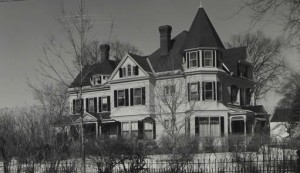Artists are often associated with having horrible addictions to drugs and alcohol. Sadly, writers are no exception. We’ve got alcoholics and drug abusers (and even rumors of a particular horror writer drinking mouthwash) amongst our peers, so the big question that sometimes comes up is do artists have to have a substance abuse problem to be good at their art? This week we asked what substances our Confabulators need in order to write. Here’s what we admitted to, at least.
I can’t say I’ve every used anything to enhance my writing, except a memory that goes back before the age of three. Any substances that I ingest are more for relief of physical twinges – tea or some kind of fruit drink over crushed ice, rice snack cakes, an apple cut into eighths and dusted with cinnamon, a couple of sections of dark chocolate. Never alcohol or any drugs, even aspirin. I need all my sense at 100% efficiency when I’m creating.
I am not pleasant to be around if I haven’t met my caffeine and sugar quota for the day. So, while it doesn’t necessarily help me write better, having coffee or Mountain Dew keeps me from snapping my laptop in half and throwing the pieces across the room in a Hulk-like rage.
When I was a bass player running around town trying to make it in an industry as fickle as music, I would sometimes play under the influence of beer. My performances then were always okay, not great. I did much better with just one beer in me before we went on. I never felt in control. By the same token, I don’t often work at writing under the influence of alcohol. Everyone who knows me (and now you, dear readers) know that I’m a whisky drinker. Scotch. Bourbon. Depends on my mood. Generally I don’t drink while I’m writing unless I’m drafting a long work. The writing while drinking is okay but not great. It’s pretty easy to tell when I’ve been drinking and writing. Now coffee, coffee’s another matter entirely.
When writing, I’ll drink coffee. Often too much, to the point that I start get twitchy.That’s fairly normal, I think. I am a social drinker — often an embarrassingly excessive social drinker — but I can’t write while drunk. I’m clumsy when drunk, and my netbook keyboard can’t take that. Also: after the loud part is over I stumble pretty quickly into sleeping.
I don’t necessarily need anything to enhance my writing ability, but the words flow more easily if I can relax with a glass of wine or pep myself up with a delicious espresso beverage. I left the harder drug experimentation behind way back in my college days, but I honestly don’t think any of that would have been even remotely helpful to my writing. Probably detrimental, if anything.
I’ve alway said that I have enough wrong with my body without messing up the wiring in my brain. For that reason, I’ve never taken drugs of the recreational variety and only moderately imbibed alcohol (except a rare night or two in my youth). The times I’ve been heavily medicated on doctors’ orders, I’ve had weird nightmarish dreams — but no good fodder for writing. To get the gates open and find my muse, I rely on relaxation and music.
I don’t like the feeling of being drunk, and I feel a revulsion towards recreational and even pharmaceutical drugs. I will drink, never more than one or two drinks, and rarely when writing. I’ll drink a lot of coffee during the day, but a lot of my writing is done in the evening or at night. I never saw the point of it all. I like being able to think clearly and experience the story fully.
